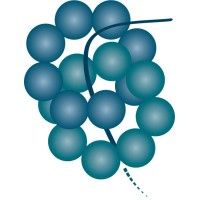预约演示
更新于:2025-05-07

Booster Therapeutics GmbH
更新于:2025-05-07
概览
标签
神经系统疾病
内分泌与代谢疾病
肿瘤
双特异性抗体
化学药
疾病领域得分
一眼洞穿机构专注的疾病领域
暂无数据
技术平台
公司药物应用最多的技术
暂无数据
靶点
公司最常开发的靶点
暂无数据
| 排名前五的药物类型 | 数量 |
|---|---|
| 化学药 | 1 |
| 双特异性抗体 | 1 |
| 排名前五的靶点 | 数量 |
|---|---|
| Proteasome(蛋白酶体) | 1 |
关联
2
项与 Booster Therapeutics GmbH 相关的药物靶点- |
作用机制- |
在研适应症 |
非在研适应症- |
最高研发阶段临床前 |
首次获批国家/地区- |
首次获批日期- |
WO2023036936
专利挖掘作用机制 Proteasome刺激剂 |
非在研适应症- |
最高研发阶段药物发现 |
首次获批国家/地区- |
首次获批日期- |
100 项与 Booster Therapeutics GmbH 相关的临床结果
登录后查看更多信息
0 项与 Booster Therapeutics GmbH 相关的专利(医药)
登录后查看更多信息
13
项与 Booster Therapeutics GmbH 相关的新闻(医药)2025-03-12
·药明康德
▎药明康德内容团队编辑
编者按:今日,Arvinas和辉瑞(Pfizer)公司联合宣布其明星PROTAC分子vepdegestrant的首个关键3期临床试验结果,并指出这款药物是首个在3期试验中展现出临床获益的PROTAC分子。这些数据将与全球监管机构分享,支持潜在的监管申请递交。值得一提的是,近10年前,在此类技术刚刚起步之时,药明康德就开始布局相关的能力和技术,并积累了大量成功经验。随着近年来对PROTAC了解的逐步深入,公司针对这类创新分子已搭建了完善的一体化赋能平台,集发现、合成、分析纯化和测试等能力于一体,目前已成功支持超过100款PROTAC分子的开发,其中超过20个分子顺利推进至临床阶段。今天这篇文章里,药明康德内容团队将从vepdegestrant的最新临床结果出发,与读者分享PROTAC药物的研发历史与未来的潜在进展。
最新3期试验数据如何?
Vepdegestrant是一款潜在“first-in-class”的口服PROTAC降解剂,利用人体天然的蛋白质降解系统特异性地靶向并降解雌激素受体(ER)。它已经获得美国FDA授予的突破性疗法认定,用于治疗经治ER阳性、HER2阴性乳腺癌。在这项名为VERITAC-2的临床试验中,在携带ESR1突变的激素受体(HR)阳性、HER2阴性乳腺癌患者群体中,vepdegestrant与活性对照相比,为患者的无进展生存期(PFS)带来统计显著并具有临床意义的改善。这些患者在此前接受CDK4/6抑制剂和内分泌治疗后疾病出现进展。在携带ESR1突变的患者群体中,患者的疾病进展或死亡风险降低超过40%(风险比低于0.60)。在包含未携带ESR1突变患者的意向治疗(ITT)患者群体中,PFS的改善未达到统计显著标准。
次要终点总生存期(OS)数据目前尚不成熟,仍需要研究继续评估。VERITAC-2的详细结果将在今年晚些时候的医学会议上报告,这些数据将与全球监管机构分享,潜在支持递交监管申请。
“PROTAC降解剂的首个3期数据的发布是一项重大成就。这些数据表明,vepdegestrant有望为数以千计患有转移性乳腺癌且肿瘤携带1型雌激素受体(ER1)突变的患者带来临床上具有意义的疗效,”Arvinas董事长、首席执行官兼总裁John Houston博士表示。“我们要感谢参与此次试验的患者和研究者,并期待与监管机构分享这些数据,我们也将在2025年的医学会议上进一步展示这一成果。”
PROTAC演化史
说到PROTAC分子的历史,还要追溯到Arvinas公司的联合创始人,耶鲁大学的Craig Crews教授,在2001年发表的一篇具有里程碑意义的论文。研究人员设计了一种人造双功能性分子,它的一端能够结合目标蛋白,另一端则是能结合E3连接酶的多肽。研究发现,这种分子能将目标蛋白拉到E3连接酶附近,让E3连接酶给目标蛋白打上泛素标签,标记它们送入细胞的蛋白酶体系统进行降解。
“未来,这一方法有望用于让蛋白出现有条件失活,以及降解导致疾病的蛋白。”该论文的摘要里写道。这一分子也被命名为蛋白靶向嵌合分子-1(protein-targeting chimeric molecule 1),缩写为Protac-1。
在2008年,Crews教授团队的科学家更近一步,开发出一种双功能小分子药物。这款小分子的一端可选择性结合雄激素受体,另一端结合叫做MDM2的E3连接酶。这种能够靶向蛋白进行降解的双功能分子也被命名为PROTAC(PROteolysis TArgeting Chimera)。我们如今常用来指代靶向蛋白降解疗法的“PROTAC”正是由此而来。
2013年,Crews教授联合创办了Arvinas公司,加速推进这一技术的科学转化。为了测试此类分子的成药可行性,该公司优先选择雄激素受体和雌激素受体这两个比较成熟的靶点。其中靶向雌激素受体的PROTAC分子,就是今日在3期临床试验中展现出临床获益的vepdegestrant(曾名为ARV-471)。由于它在前期临床试验中表现出选择性降解野生型和突变型雌激素受体的出色能力,辉瑞公司在2021年与Arvinas达成超20亿美元的研发合作,共同打造这款PROTAC分子成为治疗ER阳性乳腺癌患者的支柱性内分泌疗法。
除了vepdegestrant之外,Arvinas公司的其他PROTAC降解剂也取得了显著进展。去年,Arvinas与诺华(Novartis)就其针对雄激素受体的第二代PROTAC降解剂ARV-766达成了超过10亿美元的研发合作协议。此外,Arvinas针对LRRK2的蛋白降解剂ARV-102已进入1期临床试验,旨在治疗帕金森病。
新靶点、新模式,靶向蛋白降解走向多元化
Arvinas之外,还有多家公司正在开发与PROTAC分子具有类似作用机制的新药。例如,Kymera Therapeutics公司和赛诺菲(Sanofi)联合开发的IRAK4靶向蛋白降解剂KT-474(SAR444656)已处于2期临床开发阶段,用于治疗化脓性汗腺炎(HS)和特应性皮炎(AD)。该公司靶向STAT6的蛋白降解剂KT-621处于1期临床开发阶段,潜在治疗与2型炎症相关的多种免疫和炎症性疾病。
Nurix Therapeutics公司可穿越血脑屏障的布鲁顿氏酪氨酸激酶(BTK)蛋白降解剂NX-5948目前处于1b/2期临床开发阶段,去年公布的早期临床试验数据显示,在治疗复发/难治性华氏巨球蛋白血症(WM)患者时,NX-5948达到77.8%的客观缓解率,其中两例患者已接受治疗超过1年。该公司的另一款蛋白降解剂NX-2127可同时降解BTK和IKZF蛋白,已进入治疗B细胞恶性肿瘤的首个人体临床试验。
PROTAC分子之外,基于诱导接近(induced proximity)的创新蛋白降解模式也不断涌现。分子胶蛋白降解剂领域近两年来得到多家大型药企的关注。诺华(Novartis)、渤健(Biogen)、辉瑞、艾伯维(AbbVie)、武田(Takeda)、卫材(Eisai)与诺和诺德(Novo Nordisk)等公司纷纷达成分子胶相关的研发合作。
专注于蛋白降解的新锐持续涌现,也进一步扩展了创新蛋白降解模式。例如,Pinetree Therapeutics开发多特异性靶向蛋白质降解剂,A轮融资1700万美元,且与阿斯利康(AstraZeneca)达成总额超5亿美元合作;Draupnir Bio和Booster Therapeutics基于溶酶体机制开发蛋白降解剂,种子轮融资逾千万美元;Firefly Bio由诺贝尔化学奖得主Carolyn Bertozzi教授联合创立,开发蛋白降解剂-抗体偶联药物(DAC)。Bertozzi教授联合创建的Lycia Therapeutics在去年也完成超1亿美元的C轮融资,推进其可降解细胞外和细胞膜蛋白的溶酶体靶向嵌合体(LYTAC)技术进入临床开发。
此外,Automera公司则致力于开发自噬靶向嵌合小分子(AUTACs)。Expansion Therapeutics开发的核糖核酸酶靶向嵌合体(RIBOTAC)技术,可以实现对特定RNA的靶向降解。Vicinitas则是一家针对癌症与遗传疾病,以专有靶向蛋白稳定平台开发创新疗法的公司,其靶向去泛素化酶嵌合体(DUBTAC)平台生成的小分子可以促进蛋白质上的泛素链移除,进而避免蛋白质的降解。
▲药明康德快速构建双功能性降解剂的平台能力
作为业内靶向蛋白降解药物开发的重要赋能平台之一,药明康德早在此类药物的浪潮刚刚兴起之际,就快速搭建了综合性的赋能平台,能力涵盖PROTAC、分子胶、AUTAC、LYTAC、DUBTAC、RIBOTAC、PHICS、以及DAC等主要分子类型。根据去年投资者开放日公布的信息,自2021年起,该平台已为靶向蛋白降解领域中66%的活跃公司提供了赋能合作。
展望未来,靶向蛋白降解剂有着更为深远的意义。正如这一领域的权威,丹娜-法伯癌症研究所(Dana–Farber Cancer Institute)的Eric Fischer教授指出的那样,利用口服小分子去降解蛋白质,可以让科学家摆脱“可成药性”的束缚,真正思考哪些靶点能够最大程度地改变疾病进程。我们也期待看到更多蛋白降解药物能在临床上获得积极进展,造福广大患者。
▲欲了解更多前沿技术在生物医药产业中的应用,请长按扫描上方二维码,即可访问“药明直播间”,观看相关话题的直播讨论与精彩回放
参考资料:
[1] Arvinas and Pfizer Announce Positive Topline Results from Phase 3 VERITAC-2 Clinical Trial. Retrieved March 11, 2025, from https://www.globenewswire.com/news-release/2025/03/11/3040386/0/en/Arvinas-and-Pfizer-Announce-Positive-Topline-Results-from-Phase-3-VERITAC-2-Clinical-Trial.html
[2] 2024 WuXi AppTec Investor Day. Research Enabling Platforms Enhance CRDMO Model. Retrieved March 11, 2025, from https://static.wuxiapptec.com/6f/20240926/2024%20WuXi%20AppTec%20Investor%20Day%20-%20Research%20Enabling%20Platforms.pdf
[3] PROTAC protein degraders to drug the undruggable enter phase 3 trials. Retrieved March 11, 2025, from https://www.nature.com/articles/d41591-024-00072-8
[4] Nurix Corporate Presentation. Retrieved March 11, 2025, from https://ir.nurixtx.com/static-files/ee8cb2f8-e482-486e-a861-ececbd15f703
免责声明:药明康德内容团队专注介绍全球生物医药健康研究进展。本文仅作信息交流之目的,文中观点不代表药明康德立场,亦不代表药明康德支持或反对文中观点。本文也不是治疗方案推荐。如需获得治疗方案指导,请前往正规医院就诊。
版权说明:本文来自药明康德内容团队,欢迎个人转发至朋友圈,谢绝媒体或机构未经授权以任何形式转载至其他平台。转载授权请在「药明康德」微信公众号回复“转载”,获取转载须知。
分享,点赞,在看,聚焦全球生物医药健康创新
蛋白降解靶向嵌合体临床3期临床结果突破性疗法
2025-03-05
More than a decade after biotechs first began exploring the potential of protein degraders to treat cancer, the modality has started to steadily pick up steam in other disease areas. The latest to join this trend, Trimtech Therapeutics, pulled in a $31-million financing backed by Pfizer and Eli Lilly on Wednesday to develop brain-penetrant degraders for neurodegenerative diseases. At least two other firms have disclosed protein degrader projects in neuro, and several others have announced broad interest in immunology and inflammation (I&I). Booster Therapeutics, another early-stage startup, raised a $15-million seed round in October to target "toxic, misfolded proteins" to treat diseases such as Alzheimer's and Parkinson's. That same month, Biogen inked a deal with Neuromorph to develop molecular glue degraders for Alzheimer’s and other neurological conditions. Kymera Therapeutics announced last year it planned to pivot its degraders away from oncology and toward immunology, and Novartis and AbbVie each have secured I&I-focused molecular glue collaborations (see – Spotlight On: Novartis adds protein degrader to immunology pipeline and Vital Signs: Mapping protein degradation partnerships). Using a unique ubiquitinTrimtech's seed round was led by its founders, Cambridge Innovation Capital and SV Health Investors’ Dementia Discovery Fund (DDF), along with M Ventures and Pfizer Ventures. Additional backers include Lilly, MP Healthcare Venture Management Cambridge Enterprise Ventures and Start Codon.The funding will help the company develop small molecule degraders that recruit the E3 ubiquitin ligase TRIM21 to treat severe neurodegenerative and inflammatory disorders, such as Alzheimer’s and Huntington’s disease. The seed round should provide enough runway for Trimtech to generate in vivo proof-of-concept data for its lead programme in translational preclinical models.While many neurodegenerative diseases are characterised by protein aggregates, "traditional degrader approaches are not well-suited to degrading these toxic aggregates, preferring monomeric targets," CEO Nicola Thompson told FirstWord, adding that TRIM21 "is ideally suited to degrading these complexes because of its role in removing large viral particles from the cell as part of our natural viral defence mechanism."That's because TRIM21 is only "switched on" by multimeric targets like oligomers, aggregates or functional assemblies in a process called substrate-induced activation."In this way, TRIM21 is naturally selective for the toxic forms of the protein aggregate… while preserving healthy native versions of these proteins to maintain proper cell function," she added. Additionally, TRIM21's selectively means Trimtech doesn't need to design separate aggregate selective target binders, like those required by other E3 ubiquitin ligase-based degraders that preferentially target the monomeric versions of the proteins.Trimtech plans to develop two kinds of degraders: TRIMTACs, bispecific chimaeric molecules that recruit TRIM21 to a target protein, and TRIMGLUEs, which bring a target and TRIM21 together by exploiting cryptic mutual binding interactions.
蛋白降解靶向嵌合体
2024-12-28
·药明康德
▎药明康德内容团队编辑
共价剂、别构剂和诱导接近分子等创新小分子药物技术的进展,使产业得以超越“锁-钥原理”来靶向以往被认为“难以成药”的靶点。
2024年,这一领域依然风起云涌,诸多重磅新闻正在预示小分子药物的新篇章:
有助于加快难以成药靶点新药研发的AI解决方案摘得诺奖桂冠,多家新锐正在采用AI技术解决成药难题。
针对难以成药靶点的新颖技术纷纷被大药企看好,拜耳就针对凝聚体的药物达成超4亿美元合作;耶鲁大学蛋白降解先驱Craig Crews教授创立的Arvinas与诺华达成超10亿美元合作;分子胶领域多笔高额合作,达歌生物与武田达成总额约12亿美元合作,SEED Therapeutics与卫材达成潜在总额15亿美元的合作,Monte Rosa Therapeutics与诺华达成潜在总额超过22亿美元的合作,Neomorph今年先后与诺和诺德、渤健达成合作,潜在总额超过29亿美元……
而2025年第一季度,我们还有望迎来蛋白降解疗法研发的重要里程碑,潜在首款PROTAC疗法的3期临床研究数据揭晓在即。
在这篇文章中,药明康德内容团队将为大家回顾2024年产业针对难以成药靶点或相关技术的新药获批和研发进展趋势。扫描文中二维码或点击文末“阅读原文”可申请获得完整报告,包括已获批疗法及2025即将获批疗法盘点、大型药企管线列表、融资新锐介绍等详尽信息。
▲长按扫描二维码或点击文末“阅读原文/Read more”,即可填写问卷,申请获取攻克难以成药靶点研发进展完整报告
新型小分子获批速度稳健,2024年再迎两款KRAS靶向药
近3年来,全球范围内已有至少15款基于共价/别构/诱导接近的新颖机制开发的创新小分子首次获批,2024年也保持了稳健的获批速度。2024年4款基于共价机制的创新药在全球首次获批,包括2款治疗非小细胞肺癌(NSCLC)的KRAS共价抑制剂;此外,1款基于蛋白质-蛋白质相互作用的创新药revumenib问世,针对menin-KMT2A相互作用来抑制menin,用于治疗KMT2A易位的复发/难治性急性白血病,revumenib也是治疗此类患者群体的首款获批menin抑制剂。
▲近3年全球首次获批的基于共价/别构/诱导接近分子机制开发的疗法(药明康德内容团队制图,数据截至2024年12月20日)
基于当前研发与监管审评进展公开信息,3款共价抑制剂有望在2025年迎来首次批准:加科思研发的KRAS抑制剂戈来雷塞,用于治疗局部晚期或转移性NSCLC的上市申请已于2024年5月获中国国家药品监督管理局(NMPA)受理并纳入优先审评程序;赛诺菲旗下的两款BTK抑制剂,分别为治疗免疫性血小板减少症的rilzabrutinib和治疗多发性硬化的tolebrutinib,均已在3期试验中取得积极结果,正在准备向监管机构递交上市申请。
36家新锐完成早期融资:蛋白降解新模式、AI受青睐
2024年,共36家致力于攻克难以成药靶点或专注于相关技术的新锐获得总额近16亿美元的早期投融资。
从技术特点来看,开发共价剂(多为抗癌疗法)、别构剂(大多聚焦神经系统疾病)的新锐占据半壁江山(17家),其中不乏新颖的共价机制,如结合非自然界氨基酸生成能与靶点共价结合的治疗性蛋白。
专注于蛋白降解或调节蛋白-蛋白相互作用疗法的新锐持续涌现(12家),且不乏新模式。例如,Pinetree Therapeutics开发多特异性靶向蛋白质降解剂,A轮融资1700万美元,且与阿斯利康达成总额超5亿美元合作;Draupnir Bio和Booster Therapeutics基于溶酶体机制开发蛋白降解剂,种子轮融资逾千万美元;Firefly Bio由诺贝尔化学奖得主Carolyn Bertozzi教授联合创立,开发蛋白降解剂-抗体偶联药物(DAC),获得9400万美元A轮融资;Craig Crews教授创立的Halda Therapeutics开发基于诱导接近机制的RIPTAC(调节诱导接近靶向嵌合体)分子,完成1.26亿美元B轮融资。Halda自成立以来就与药明康德长期合作。药明康德针对蛋白降解疗法的研发搭建了完善的一体化赋能平台,服务了全球蛋白降解疗法开发领域66%的公司,助力前沿科学发现转化为创新疗法。
也有多家新锐开发大环分子。与抗体等生物制品相比,大环分子的分子量更小,可以口服使用,并且可以穿过细胞膜靶向细胞内的蛋白。而与传统小分子相比,环状结构让大环分子更容易影响蛋白质之间的相互作用,从而靶向传统小分子药物和线性多肽难于靶向的靶点。
AI也是今年的一大热点。多家新锐基于AI平台攻克难成药靶点,加速疗法研发,包括由蛋白设计先驱David Baker教授联合创立的两家公司:Vilya基于AI平台从头设计大环分子,完成2100万A轮扩展融资,Archon Biosciences设计抗体笼,这类分子由抗体和AI生成蛋白结构域组成,该公司完成2000万美元种子轮融资。
大药企临床管线:潜在首款PROTAC即将冲线,新一代KRAS靶向疗法涌现
针对难以成药靶点或基于相关技术,全球20家大型药企已布局36款临床在研疗法。这些疗法中,近一半已处于后期研发阶段或正在拓展适应症。
▲全球20家大型药企针对难以成药靶点或采用相关机制开发的管线分布;扫描文中二维码可申请获取完整管线列表(药明康德内容团队制图,数据来源为各药企公开信息,截至2024年12月,20家大型药企参考行业媒体Fierce Pharma 2024年榜单)
其中广受关注的是潜在首款PROTAC疗法vepdegestrant。辉瑞与Arvinas在2021年就这款疗法达成超20亿美元研发合作,期望它能成为雌激素受体阳性(ER+)乳腺癌患者的支柱性疗法。两家公司预计在2025年第一季度公布其作为乳腺癌单药疗法的3期试验顶线数据。目前,vepdegestrant联合CDK4/6抑制剂的临床研究也在推进,已有两项1b期临床试验显示积极结果。
其他处于3期临床开发阶段的在研疗法还包括:治疗NSCLC的2款KRAS抑制剂olomorasib和divarasib,治疗银屑病的TYK2抑制剂zasocitinib,治疗淋巴瘤、靶向Ikaros/Aiolos的分子胶golcadomide,治疗乳腺癌的多款雌激素受体降解剂,以及针对BTK、EGFR、HER2等经典靶点的共价抑制剂等。如前文所述,赛诺菲旗下2款BTK共价抑制剂均即将迈入监管申请阶段。
多样化的技术正在解决更多靶点的成药性,如Helios、WRN、CK1α等靶点。新一代KRAS靶向疗法也是热门研发方向,如泛KRAS抑制剂、采用非共价机制的KRAS抑制剂。
结语
2024年,解锁难以成药靶点的技术持续为患者带来创新疗法,资本市场继续扶植前沿技术的发展,尤其是在蛋白降解领域,在PROTAC和分子胶之外,更多异双功能分子等新颖技术的涌现正在拓展成药边界,而AI从头设计蛋白、抗体、环肽等药物则为加速新药研发注入强大推动力。我们坚信,攻克难以成药靶点的研发浪潮势不可挡,首款PROTAC疗法呼之欲出,更多靶点的突破也指日可待,将造福全球更多患者。
▲长按扫描二维码或点击文末“阅读原文/Read more”,即可填写问卷,申请获取攻克难以成药靶点研发进展完整报告
▲欲了解更多前沿技术在生物医药产业中的应用,请长按扫描上方二维码,即可访问“药明直播间”,观看相关话题的直播讨论与精彩回放
免责声明:药明康德内容团队专注介绍全球生物医药健康研究进展。本文仅作信息交流之目的,文中观点不代表药明康德立场,亦不代表药明康德支持或反对文中观点。本文也不是治疗方案推荐。如需获得治疗方案指导,请前往正规医院就诊。
版权说明:本文来自药明康德内容团队,欢迎个人转发至朋友圈,谢绝媒体或机构未经授权以任何形式转载至其他平台。转载授权请在「药明康德」微信公众号回复“转载”,获取转载须知。
分享,点赞,在看,聚焦全球生物医药健康创新
优先审批临床3期蛋白降解靶向嵌合体上市批准
100 项与 Booster Therapeutics GmbH 相关的药物交易
登录后查看更多信息
100 项与 Booster Therapeutics GmbH 相关的转化医学
登录后查看更多信息
组织架构
使用我们的机构树数据加速您的研究。
登录
或

管线布局
2026年02月07日管线快照
管线布局中药物为当前组织机构及其子机构作为药物机构进行统计,早期临床1期并入临床1期,临床1/2期并入临床2期,临床2/3期并入临床3期
药物发现
1
1
临床前
登录后查看更多信息
当前项目
| 药物(靶点) | 适应症 | 全球最高研发状态 |
|---|---|---|
Neurodegenerative(Booster) | 神经退行性疾病 更多 | 临床前 |
WO2023036936 ( Proteasome ) | 营养和代谢疾病 更多 | 药物发现 |
登录后查看更多信息
药物交易
使用我们的药物交易数据加速您的研究。
登录
或

转化医学
使用我们的转化医学数据加速您的研究。
登录
或

营收
使用 Synapse 探索超过 36 万个组织的财务状况。
登录
或

科研基金(NIH)
访问超过 200 万项资助和基金信息,以提升您的研究之旅。
登录
或

投资
深入了解从初创企业到成熟企业的最新公司投资动态。
登录
或

融资
发掘融资趋势以验证和推进您的投资机会。
登录
或

生物医药百科问答
全新生物医药AI Agent 覆盖科研全链路,让突破性发现快人一步
立即开始免费试用!
智慧芽新药情报库是智慧芽专为生命科学人士构建的基于AI的创新药情报平台,助您全方位提升您的研发与决策效率。
立即开始数据试用!
智慧芽新药库数据也通过智慧芽数据服务平台,以API或者数据包形式对外开放,助您更加充分利用智慧芽新药情报信息。
生物序列数据库
生物药研发创新
免费使用
化学结构数据库
小分子化药研发创新
免费使用